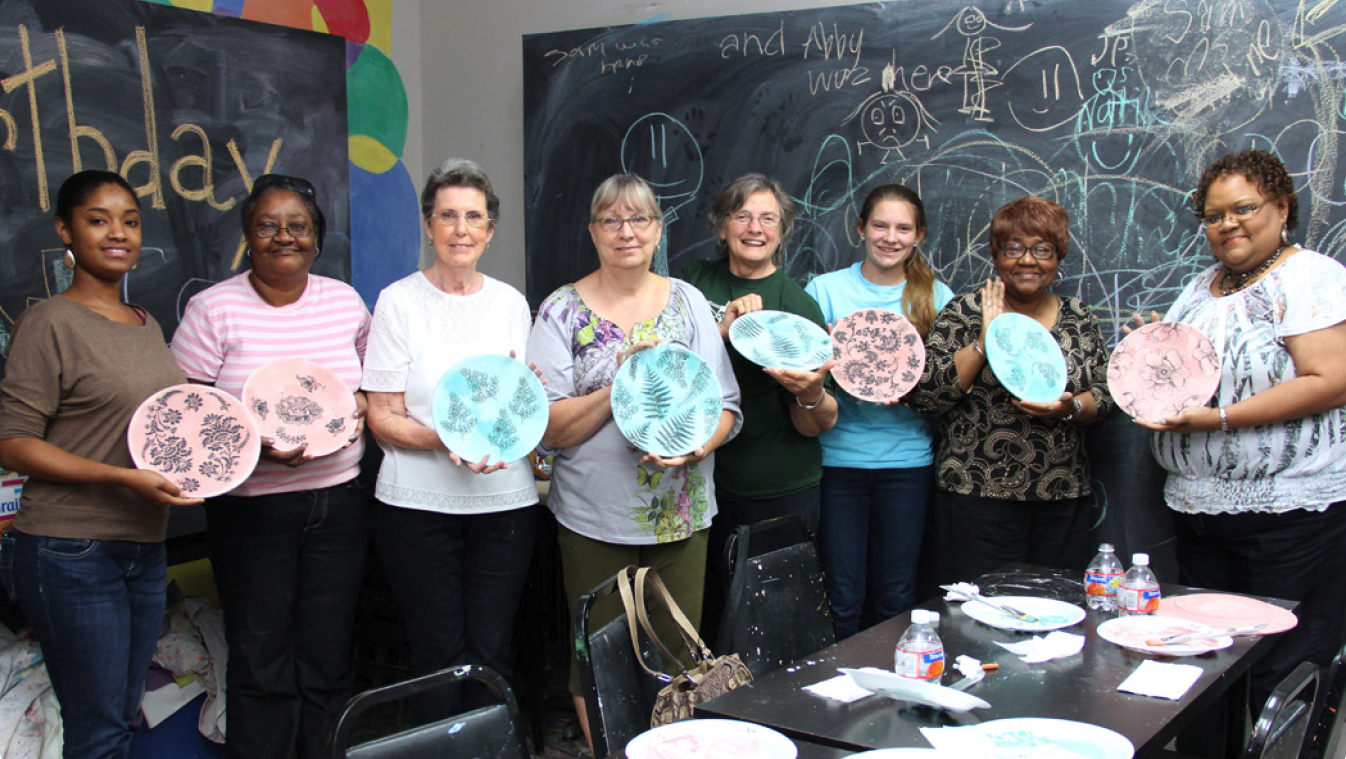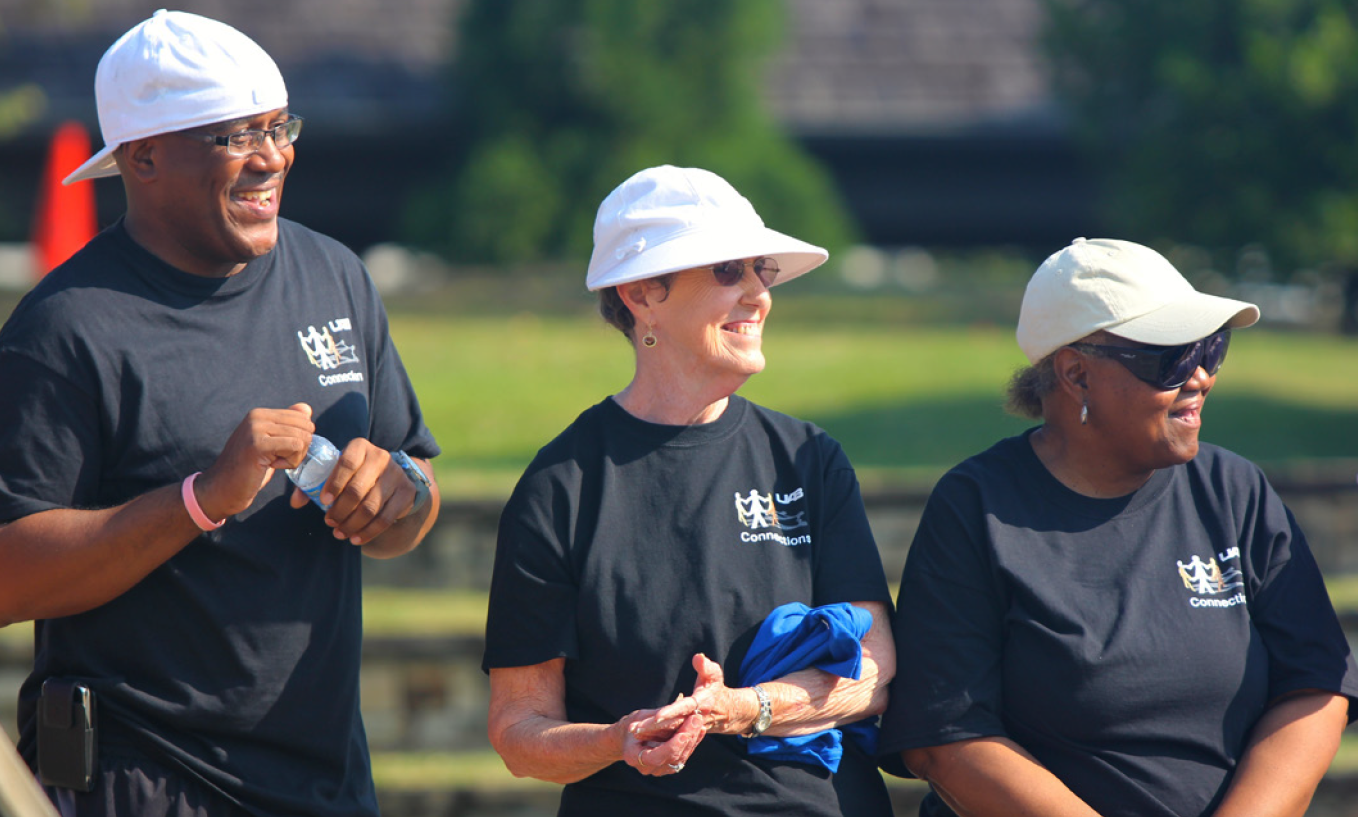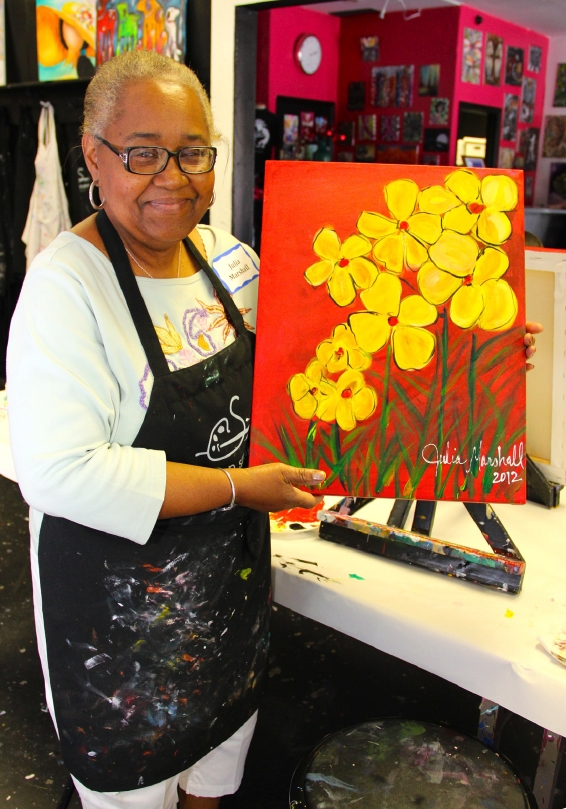 UAB Connections provides services to Alabamians living with vision impairments, and to their families or close friends. We also provide eye-health education training to organizations and businesses in the community who want to learn more about eye health and vision or adapting their services. We welcome patients referred by physicians and other allied health care providers, concerned family members, as well as self-referrals.
UAB Connections provides services to Alabamians living with vision impairments, and to their families or close friends. We also provide eye-health education training to organizations and businesses in the community who want to learn more about eye health and vision or adapting their services. We welcome patients referred by physicians and other allied health care providers, concerned family members, as well as self-referrals.
UAB Connections is an innovative, state-of-the-art service not often incorporated into ophthalmology departments. UAB is a leader in treating the whole patient and their family. While many individuals adjust to an eye disease or injury without assistance, others experience greater difficulty and would potentially benefit from attending UAB Connections.
Quality of life is an important part of health.
 However, an eye disease or injury can negatively affect one's quality of life, and present challenges to everyday activities, satisfaction with social relationships, and the ability to maintain health.
However, an eye disease or injury can negatively affect one's quality of life, and present challenges to everyday activities, satisfaction with social relationships, and the ability to maintain health.
The UAB Connections support group provides a unique service that can help both patients and their families adjust to the challenges of living with an eye disease or eye injury. This service, along with ongoing medical and surgical treatments for vision, can help treat the "whole person" and help provide a greater sense of well-being, independence, and control over one's quality of life. We also offer community education workshops to help raise public awareness for eye health and vision impairments.
Our team of interdisciplinary specialists, which includes behavioral health experts, ophthalmology faculty and residents, low vision specialists, and community leaders, facilitates comprehensive educational, social, and physical/recreational activities within the context of a peer support network.
How It Works
- Patients with a range of eye diseases are welcome, along with their families, to join.
- We discuss topics such as eye health, eye diseases, coping skills, strategies to compensate for vision loss, stress management, patient-doctor communication tips, assistive technology and low vision devices, cutting edge vision research, and family caregiver adjustment.
- In addition to providing an expert-led health education curriculum, we also engage patients and families through activities within the community that promote physical, recreational, and social interaction. The goal is to foster healthy lifestyles and a sense of community. This also provides a unique opportunity to educate community leaders on how to adapt services and activities to families with vision impairments.
- The groups are structured and led by a trained facilitator. Members may attend as many or as few as they like, depending on the topics and/or activities that are of particular interest. Members are encouraged to participate, but are equally welcome to just listen and learn.
The Benefits 
Our UAB Connections members report greater:
- Control over their eye health, confidence, overall well-being and quality of life.
- Independence and community integration.
- Satisfaction with relationships.
- Coping and self-management skills.
- Caregiver adjustment.
- Family awareness of the difficulties faced by their relatives living with a vision impairment.
Get Involved
Support group meetings are held the first Tuesday of every month, 10:30 a.m. to 12:30 p.m., at UAB Callahan Eye Hospital in the 3rd floor Brice Boardroom. Zoom is available upon request.
The first hour is a presentation and group conversation with a UAB Callahan Eye faculty, resident, or fellow that provides education on vision care. The second hour is a Therapeutic Breakout Session led be a member of the UAB Connections staff.
In order to, reserve a spot given limited space, refer a patient or make a self-referral, obtain information related to accessing the group virtually, or learn more about the group, please contact the group facilitator, Molly Cox.
Office: (205) 488-0778
Email: mollycox@uabmc.edu
UAB Connections is directed by Laura Dreer, Ph.D.
UAB Connections would like to thank the EyeSight Foundation of Alabama for their generous support which funds the group.